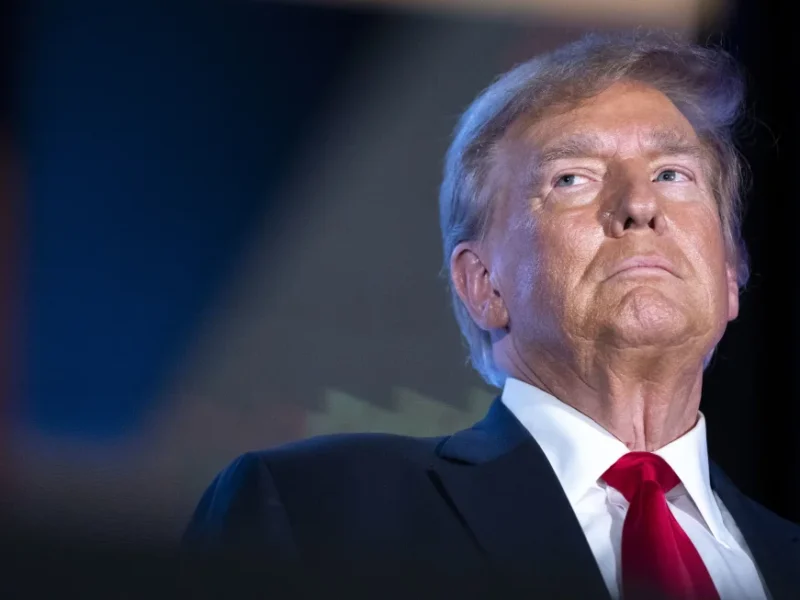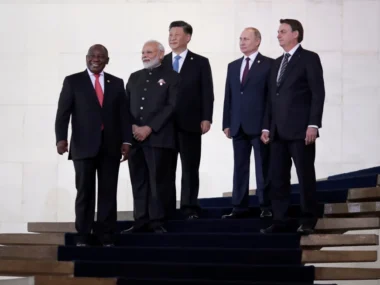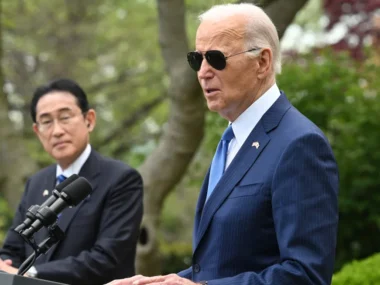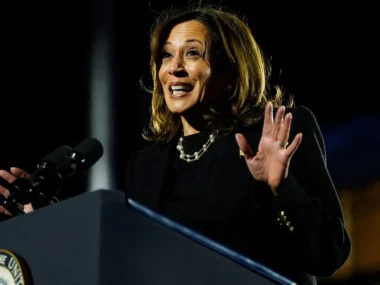A New York judge has recently become part of the extensive group consisting of judicial peers, government officials, and campaign personnel who have attempted the seemingly impossible task of controlling Donald Trump.
Late on Monday, Judge Juan Merchan expanded a gag order against the former president ahead of his trial involving hush money, scheduled to commence in less than two weeks. This decision followed Trump’s scathing social media attacks directed at the case, prosecutors, the legal system, and even the judge’s daughter.
The judge cautioned that Trump’s actions posed a threat to anyone associated with the case and amounted to an assault on the rule of law.
Merchan stated in an order that it was no longer merely a possibility or a reasonable likelihood that there was a threat to the integrity of the judicial proceedings; the threat was very real. He emphasized that mere admonitions and reliance on self-restraint were insufficient, particularly considering the potential future presidency of Trump.
This ruling represents the latest surprising turn in Trump’s longstanding disregard for the regulations and laws governing other politicians, business figures, and citizens. It highlights a precarious national moment as it arises from one of four criminal trials the presumptive GOP nominee faces while campaigning to reclaim the presidency.
Despite the revised order allowing Trump to express criticism towards Merchan—which he promptly did on Tuesday morning on Truth Social, demanding the judge’s recusal from the case—as he resumes his campaign activities in the coming weeks, with scheduled stops in Michigan and Wisconsin on Tuesday, there are restrictions. Past experiences with partial gag orders in similar cases suggest that the former president will likely argue that his constitutional rights as a defendant and his freedom of speech as an active presidential candidate are being infringed upon. However, with the expanded measures announced on Monday, Merchan’s family and relatives of the Manhattan district attorney are now off-limits. Previously, the gag order had prevented Trump from making statements about witnesses, jurors, prosecutors, court staff, or their family members.
What are the consequences if Trump fails to adhere to the directives?
Merchan’s recent action prompts a critical question: What recourse does the judge have if Trump refuses to comply with the order? Initially, the judge might impose fines in an attempt to compel compliance from arguably the most renowned criminal defendant globally. However, in theory, there exists the possibility of incarceration—although the notion of a former president being imprisoned until he respects the court’s authority seems far-fetched.
Adam Pollock, a former New York assistant attorney general, highlighted that under normal circumstances, a typical defendant would be sent to Rikers Island, a well-known New York jail, where they would quickly learn appropriate behavior before a trial. However, Pollock noted that Trump is not an ordinary defendant.
Despite Trump’s assertions of being unfairly targeted by Democrats, his apparent immunity to significant repercussions for his relentless attacks on prosecutors and judges demonstrates that he receives preferential treatment unavailable to other defendants.
Trump’s objective is evident: he aims to create a spectacle around the upcoming trial, scheduled for April 15, in an effort to undermine the legal system that seeks to hold him accountable. While denying any wrongdoing, he also seeks to preemptively discredit potential guilty verdicts in a case linked to allegedly falsified business records concerning a payment to an adult film star in 2016. Across this case and three others where he faces criminal charges, the former president continues to promote his narrative that he is a victim of political persecution—an argument that serves as his primary legal defense.
Trump’s threats extend beyond mere rhetoric; they pose genuine security risks, particularly when targeting court staff and their families. This situation is particularly concerning given Trump’s demonstrated ability to incite violence through his words, as witnessed during the January 6, 2021, attack on the US Capitol by a mob of his supporters.
The current situation faced by Trump.
The updated gag order marks another instance where Trump’s unrestrained rhetoric clashes with factual evidence and the principles of law. Such conflicts will likely become increasingly pivotal in shaping his future.
This trend extends to Trump’s financial situation as well. The stock of his media company, Trump Media & Technology Group, plummeted on Monday following a surge in its stock price after going public last week. This reversal occurred after the company, which owns Truth Social, Trump’s social network, disclosed substantial losses of over $58 million and minimal revenue in 2023. Trump, as the majority shareholder, saw his net worth drop by more than $1 billion as a consequence.
However, there was some positive news for the presumed nominee as he successfully thwarted attempts by New York authorities to initiate property seizures in connection with a significant fraud judgment against him from a civil trial. On Monday night, Trump posted a $175 million bond to prevent any action against his property empire until at least September, when the state’s appeals court will hear his appeal against a $464 million verdict involving him and his adult sons.
Interestingly, Trump managed to secure insurance backing for the bond only after the judicial system, which he often criticizes as corrupt and biased, provided him with leniency. Last week, an appeals court reduced the bond requirement and granted him a 10-day extension, allowing him to meet the deadline this Thursday.
Despite resolving the civil fraud case’s bond issue before the deadline, Trump’s journey to two battleground states on Tuesday serves as a temporary break between court proceedings for the former president.
However, his upcoming hush money trial in New York, scheduled to begin in less than two weeks, will demand his presence in court four days a week, complicating his ability to campaign, especially as President Joe Biden intensifies his reelection efforts. Whether this scenario foreshadows the remainder of the campaign season hinges on the progress of Trump’s other legal battles. Three other trials—two concerning election interference and one regarding the mishandling of classified documents in Florida—are mired in pre-trial disputes and appeals as his legal team seeks to postpone accountability until after the election.
The impending trial.
In the upcoming days, the focus on the hush money case is expected to intensify, potentially testing Merchan’s resolve to restrain Trump and prevent the courtroom from becoming a de facto political platform for the former president. Trump has already incurred the displeasure of several judges in other instances, notably Judge Arthur Engoron, who presided over his civil fraud trial and implored Trump’s attorneys to rein in their unruly client.
Trump’s targeting of Merchan’s daughter, who has been involved in Democratic campaigns, along with other court officials, is part of his effort to persuade his supporters that the legal system is irredeemably corrupt, making a fair trial impossible—despite the fact that the charges against him have resulted from grand jury proceedings and legal protocols, and he has been afforded ample opportunity to present a defense.
Given the potential impact of Trump’s past statements, his recent threats carry significant weight.
Temidayo Aganga-Williams, a former senior investigative counsel on the January 6 committee in the previous Democratic-controlled House, emphasized on CNN that courts have no choice but to take Trump’s threats seriously. “He knows how to mobilize his supporters. He did it with January 6. I think that’s what he is doing now… he’s acting very deliberately. I think we have to heed that warning now.”
Merchan appears to share this concern.
“The average observer must now, after hearing defendant’s recent attacks, draw the conclusion that if they become involved in these proceedings, even tangentially, they should worry not only for themselves, but for their loved ones as well,” Merchan stated in his order on Monday.
“Such concerns will undoubtedly interfere with the fair administration of justice and constitute a direct attack on the Rule of Law itself.”











